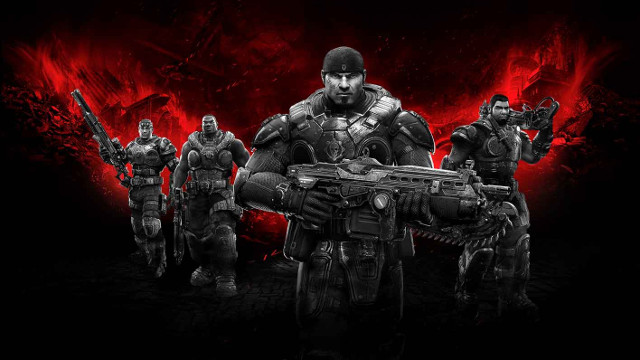We've all seen those movie trailers, and before you ask which movie trailer, it's seeming like every movie trailer. You know, the ones that use a creepy or somber rendition of a popular song to alter its mood and transpose it over tragic or frightening footage as a way to create the mystical "juxtaposition"? I can name four major trailers off the top of my head to make use of this trope in the last few months. Snowden used "When the Saints Go Marching In," Blair Witch used "Every Breath You Take" (forgetting that that song is already pretty creepy), The Girl on the Train used "Heartless," A Cure For Wellness used "I Wanna Be Sedated," all with new, darker versions of the songs used.
But, with Outlast 2's latest trailer, Red Barrels showed us all that movies don't have a trademark on this trope. Using a dark version of the children's bible song "O Be Careful Little Eyes," the title of which sounds like it may have originally ben a song for a horror game tha was turned into a bible song, Outlast 2 threw its lot in with this recent explosion of a trend. In fact, more and more in recent memory, video games have included new renditions of pop songs for their trailers.
This is different than simply using a song of a particular tone over a trailer. Outlast: Whistleblower did this with the old-timey "I Want a Girl" song, which, after you play the game, you'll know to be very fitting. Fallout 3 did the same thing with the Ink Spots' "I Don't Want to Set the World on Fire," to great affect. You have to get music from somewhere, but creating a cover to drastically change the tone – that's the trope.
Again, just off the top of my head, I can recall the trailer from Remedy Entertainment's Quantum Break, which used a "haunting cover" of Nirvana's "Come As You Are." Oddly enough, this one in particular joins the trend of using a monotonous female voice, as seen in Blair Witch, Snowden and A Cure For Wellness.
Going back even further, you'll see even great games such as Dark Souls III falling into this trap. Its "Shadows Ahead" trailer used a cover of "True Colors" by Cyndi Lauper (yes, the "Girls Just Wanna Have Fun" Cyndi Lauper). You see, because it's a kitschy song, and Dark Souls III is not a kitschy game? Wow, what a profound juxtaposition!
Back before this was even that big of a thing for movies to do, Crysis 2 had a cinematic trailer that featured a slow, darker cover for "New York, New York," the theme song from Martin Scorsese's film of the same name. Some people accused the trailer of cashing in on post-9/11 sentimentality (alebit 9 years after the fact), but it fits this trope regardless of its motive.
While video games may only be just now breaking into this market, it may be because of a video game that this market exists at all. Way back in 2006, Gears of War launched the somber cover of Tears for Fears' "Mad World" into global popularity. This is a slightly different scenario, though. While a lot of people think this cover was made specifically for Gears of War, Gary Jules and Michael Andrews actually recorded this song for the 2001 film Donnie Darko and it was merely re-appropriated for the popular third-person shooter.
They did something similar with the trailer for Gears of War 4, which many people thought used a newly-created version of Simon & Garfunkel's "The Sounds of Silence," but that cover by the hard rock band Disturbed was already a year old by the time Gears of War 4 got a hold of it.
While this is different than commissioning or recording a cover of a song for a trailer, as the trend we're seeing now dictates, it easily could have been the catalyst. The trailer was insanely popular, directed by industry elite Joseph Kosinksi, and it sent a message that somber versions of pop songs put over a dark and gritty trailer works wonders on audience reception. But, instead of waiting for a somber cover of a pop song to be released, studios are deciding to make them, themselves.
But, even though it's moving into a new medium in video games, I can't imagine this trope is going to seem any less tired, as the Hollywood and Independent scenes alike have teamed up and beaten it to death. I guess now they're tagging in the video game industry.











